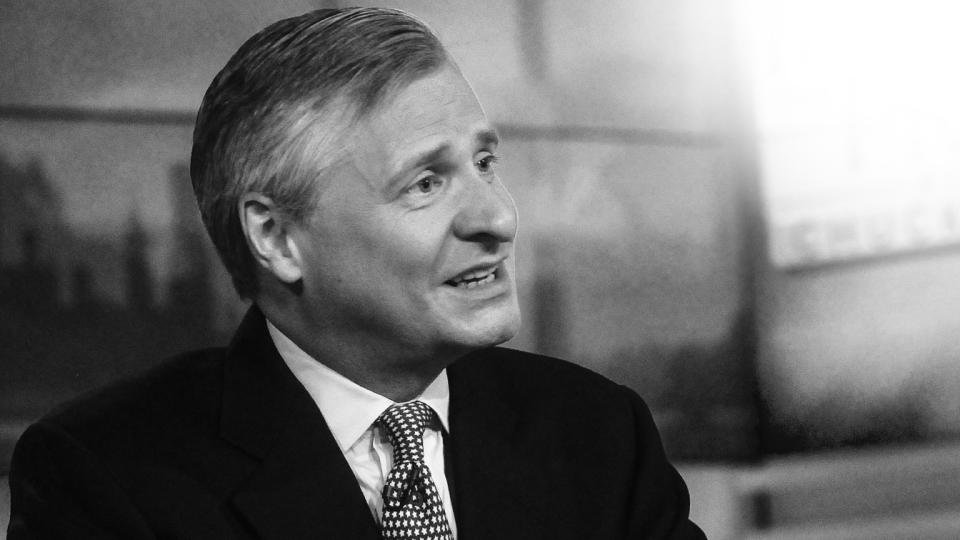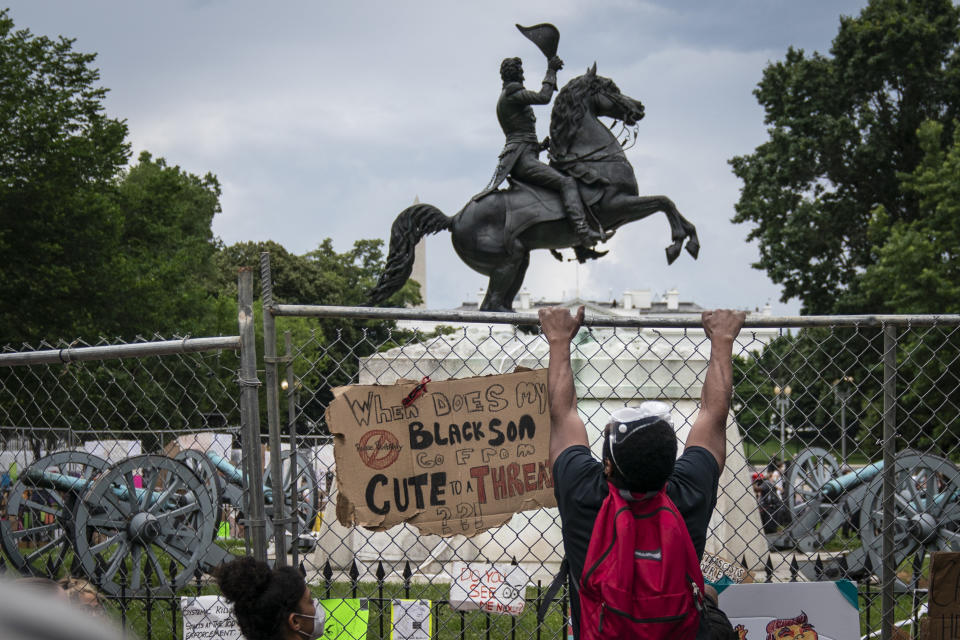Presidential historian Jon Meacham: I endorsed Biden because 'this is an existential election'
- Oops!Something went wrong.Please try again later.
- Oops!Something went wrong.Please try again later.
- Oops!Something went wrong.Please try again later.
Presidential historian Jon Meacham says he didn’t hesitate when former Vice President Joe Biden called him at home in Nashville late last month with an invitation to speak at the Democratic National Convention.
“I’ve voted for presidents of both parties,” Meacham said in an interview with the Yahoo News podcast “Skullduggery” as he recalled the moment. “This is not a close call this year. This is not Romney/Obama. This is, I believe, an existential election.”
Meacham, the former editor of Newsweek, said he felt it was his patriotic duty to accept Biden’s invitation.
“For all of Joe Biden’s imperfections,” he said, “it is vitally important that the incumbent president no longer be the incumbent president.”
After extracting a promise from the campaign that he would not be edited or “directed in any way,” Meacham wrote his speech.
In his “Skullduggery” interview, Meacham laid the blame for mismanaging the coronavirus pandemic squarely at the president’s feet. Whatever Trump’s other flaws may be, he said, a few stand out to him as most significant.
“It is the persistent triumph of unreason. It is the prevalence of narcissistic wishful thinking on the part of the president himself, where facts that are inconvenient to his sense of himself and his search for continued power and prominence are ignored, pushed aside, reworked,” Meacham said. “People are now dying because of his failure to acknowledge the role of reason, fact, science and law, and again, it’s not a close call, because 180,000 or more people are dead.”

Meacham, whose books have long focused on how religion and race shape politics, said the country’s mood today is reminiscent of 1968, when racial unrest and the bloody toll of the Vietnam War fueled massive protests and a national identity crisis. His latest book, “His Truth Is Marching On: John Lewis and the Power of Hope,” was published this week.
“There’s unwarranted police violence,” Meacham continued. “There’s vigilante, opportunistic violence, and, yes, there’s looting and lawlessness. There’s a way to talk about all of it.”
Trump now trails Biden in public polling — by 11 points, according to the latest Yahoo News/YouGov survey — but Meacham observed that the president continues to solely focus on motivating his base rather than expanding it. He said he considers how the president and his administration talk about race through that lens.
“It goes back to this idea that it’s not about the country — it’s about their voters,” Meacham said. “And their voters, in their estimation, aren’t interested in the harder work of attacking the structural racism, the structural inequality, that is self-evident. ... They don’t see any percentage in it.”

Meacham won the Pulitzer Prize for his history of fellow Tennessean and former President Andrew Jackson, whom Trump reveres, so he naturally had perspective to offer on the bronze statue of Jackson in Washington’s Lafayette Square. The square was the site of Trump’s infamous Bible-clutching photo op amid Black Lives Matter protests in Washington in June; peaceful demonstrators were forcibly removed by federal officers to make way for Trump to be photographed. Jackson was a slave owner who forcibly and violently removed Native Americans from their land.
Initially, Meacham said he would support removing the statue of Jackson, since his “test of statues on public land in places of clear veneration is, ‘Were you devoted to the project of a constitutional journey toward a more perfect union?’” Later, Meacham expanded on his view, saying that rather than remove the iconic statue of Jackson on horseback, he’d like to see other statues added.
“What I would rather see in Lafayette Park, if it were possible, would be addition as opposed to subtraction,” he said. “Why can’t we use this energy that’s been created by the kind of culture you’re talking about to commemorate figures from our national story who have not been commemorated? Why is there not a statue of Harriet Tubman there? Why is there not a statue of Frederick Douglass there?”
_____
Read more from Yahoo News:
You don't need the U.S. Postal Service to deliver your mail-in ballot
'I trusted them.' Some 'Build the Wall' donors feel cheated by Bannon. Some don't care.
Exclusive: DHS warns of fake election websites potentially tied to criminals, foreign actors
Oleandrin, touted as COVID-19 cure, has no scientific support


